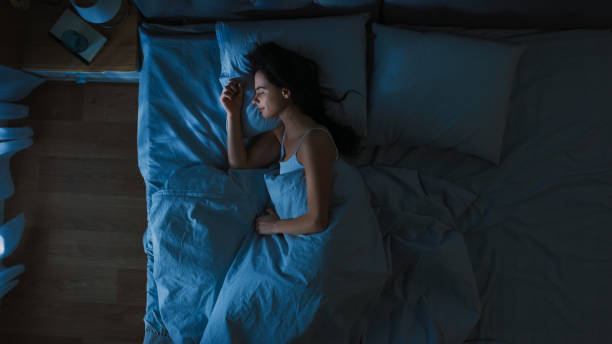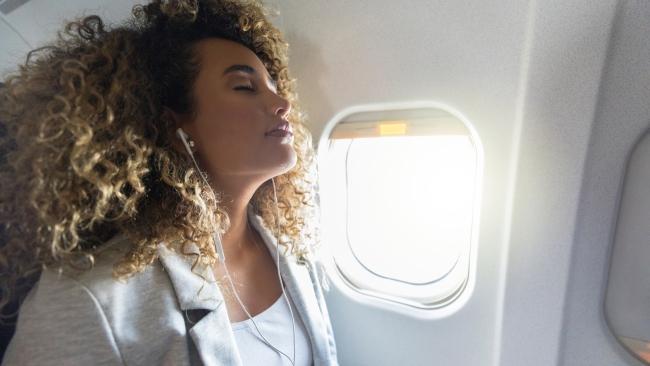How to sleep on a plane – one question, many answers. I’ll admit, how to sleep comfortably on a plane…. it’s a tough ask. Here, I’m breaking down what to do before a flight to sleep better, and also, what to do during a flight to sleep better. Note this will also help reduce jet lag when you land too. As a frequent traveller, I know, spending your first few days of a trip battling brain fog and sleepiness isn’t exactly what you have in mind when you picture your perfect holiday. But – let that be a memory of the past as I teach you how to sleep on a plane.

How to sleep on a plane part one – the night before you leave
Room settings
Make your room is as dark as possible. Light is the number-one factor to control the circadian rhythm, and therefore melatonin levels. Even a dim interior light can reduce melatonin synthesis by 50 per cent, which could contribute to nighttime wakings. Temperature wise, a cool 18 degrees celsius is recommended.
Leave the phone outside
And put it down at least an hour before you go to bed. A 2012 study in BMJ Open found those using a phone in the last hour before bed were 48 per cent more likely to take over an hour to fall asleep. I have a ‘goodnight phone alarm’ as part of my bedtime routine – a reminder to say ‘goodnight’ to your phone!
The right diet
Stock up on kiwifruit and tart cherries. A 2011 study by Taipei Medical University found sleep quality improved by 42 per cent after two weeks of two kiwi fruit a night. Similarly, a 2014 study reported tart cherry juice could extend sleep length by one hour and 25 minutes after 2 weeks of a nightly glass. This is likely because it’s rich in melatonin – the sleepiness hormone we need to fall and stay asleep with ease.
Prepare for the holiday time zone
Start the timezone shift several days in advance. For example, when going back in time, shift back your sleep and wake times by 30 to 60 minutes each night prior to the trip. This can be supported by the use of melatonin supplements in the evening and light therapy in the morning. In addition, shift your eating and exercise habits too. For example, if you usually have breakfast at 9am, two hours after you wake at 7am; if you are now waking at 6am, have breakfast at 8am.

Part two: In flight
Buy an eye mask and earplugs
An eye mask is a necessity. The absence of light signals to our pineal gland (in the brain) that it should produce melatonin, our sleepiness hormone, that helps us fall and stay asleep. Similarly, earplugs can support sleep; as excessive noise can lead to nighttime disturbances. Both an eye mask and earplugs are available in my sleep solutions shop.
Lay off the booze
Alcohol is a saboteur that limits REM sleep – a deep sleep stage associated with memory and emotional stability. And yes, even just one or two drinks count. This small amount can compromise sleep quality by 9 per cent and leave you more fatigued.
Avoid sleeping pills
Avoid them at home, and avoid them while travelling. A 2015 study published in the journal Sleep Disorders found that 80 per cent of benzodiazepine users – a common sleeping pill – experienced fogginess and fatigue the next day. Not the way you want to start your holiday.
This article originally featured on Escape
+ show Comments
- Hide Comments
add a comment